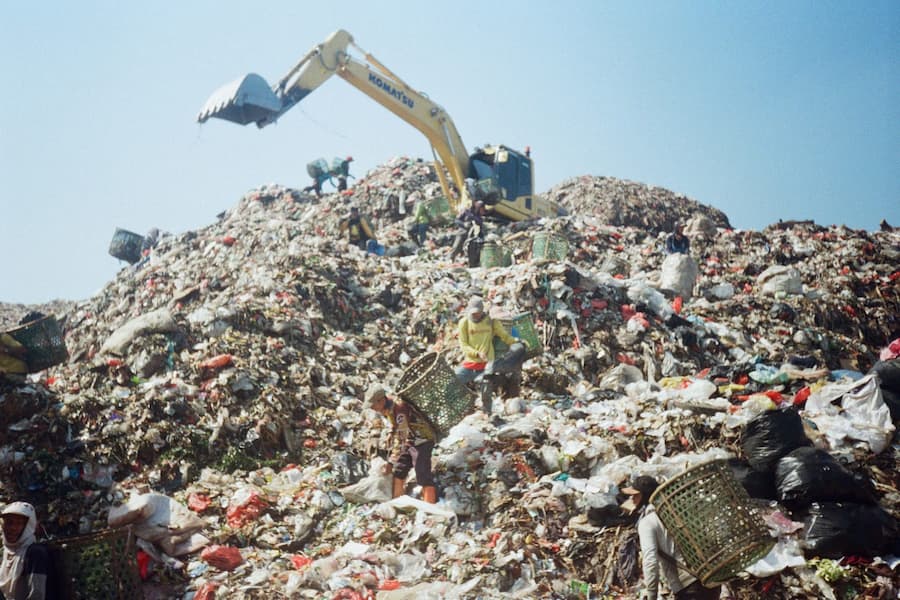Introduction
A pervasive issue influencing communities, surroundings, and economies all around is poor waste management practices. Many areas still suffer with insufficient systems and practices even if environmental concerns are becoming more and more important and waste management is vital. The common causes of poor waste management techniques are investigated in this paper together with the elements influencing improper waste handling and disposal.
Reasons of Poor Waste Management Practices
Lack of Infrastructure: Inadequate Facilities and Services
Insufficient infrastructure is one of the main causes of poor waste management. Many areas, especially in poor nations, lack the tools and infrastructure needed to properly manage trash. This covers insufficient dumping sites, poor trash collecting methods, and no recycling facilities. Inappropriate infrastructure causes waste management to become disorderly and ineffective, therefore generating extensive pollution and health risks. Skip hire Stockport is best in the UK for waste management services.
Limited Resources and Funding: Financial Constraints
Good waste management is hampered greatly by financial restrictions. Many nations and municipalities have financial constraints that prevent their capacity to make investments in contemporary waste management systems. From collecting and transportation to recycling and disposal, limited resources may impact every facet of waste management. Poor financing for waste management services might cause them to be undeveloped or poorly maintained, therefore influencing poor waste handling.
Lack of Public Awareness and Education: Low Engagement
Poor waste management results from public ignorance of waste management techniques and inadequate education on them. Many people and communities lack complete knowledge of the advantages of recycling and appropriate disposal or the effects of their waste habits. People may continue to dispose of waste incorrectly without enough education and awareness efforts, hence increasing littering, unlawful dumping, and general waste management issues.
Inadequate Policies and Regulations: Weak Governance
In poor waste management, two major causes are weak government and insufficient policies. Many areas have inadequate implemented policies or lack complete waste management laws. Inaccurate legal systems could result in less responsibility and control over waste management policies. Furthermore, lacking clear norms and standards might lead to different and poor waste management practices.
Cultural and Behavioral Factors: Resistance to Change
Cultural and behavioral factors can also contribute to poor waste management practices. Certain societies may have customs or attitudes around trash that resist change. People might not give waste management top priority because of other more urgent issues or could be used to casual waste disposal techniques. Waste management systems may not be as effective as they may be if behavioral opposition to implementing new habits as composting or recycling exists.
Rapid Urbanization: Overwhelming Waste Generation
Rapid population increase and urbanization can overwhelm current waste management systems. Waste generation grows as cities grow and people climb as well. This increase in waste can tax resources and infrastructure, resulting in poor management techniques and inefficiencies. Particularly urban regions could find it difficult to meet the needs of waste collecting and disposal, which would lead to more litter and pollution.
Improper Waste Segregation: Lack of Sorting Practices
One often occurring problem aggravating poor waste management is improper trash segregation. Many waste management systems depend on accurate trash classification into groups including recyclables, organics, and non-recyclables. Improper sorting of waste at the source could complicate recycling operations and contaminate recyclable products. This thus lowers the success of recycling initiatives and fuels the waste accumulation in landfills.
Inefficient Collection Systems: Inconsistent Services
Poor waste management techniques might result from ineffective trash collecting systems. In certain places, irregular or faulty waste collecting systems could cause missing collections and overflowing containers. Inappropriate waste disposal, more litter, and disease transmission can all result from this inefficiency. To guarantee effective management of waste, efficient waste collecting calls for well-designed schedules, sufficient resources, and dependable services.
Technological Limitations: Outdated Methods
Furthermore, influencing poor waste management might be technological constraints. For waste collecting, sorting, and disposal certain areas still employ antiquated technology and techniques. Efforts to properly manage waste might be hampered by the absence of sophisticated waste management technology such as contemporary recycling facilities or waste-to–energy systems. Improving waste management methods and lowering environmental impact depend on investments in and acceptance of new technology.
Conclusion
A multifaceted issue affected by several elements including insufficient infrastructure, limited resources, lack of public knowledge, weak legislation, and cultural attitudes is poor waste management methods. Dealing with these problems calls for an all-encompassing strategy including new technology adoption, infrastructural investment, public education enhancement, and policy execution. Through addressing the underlying causes of poor waste management, governments and communities may endeavor toward more sustainable waste handling methods, therefore lowering environmental impact and enhancing public health. Visit Varierty Magzine for more informative blogs.











